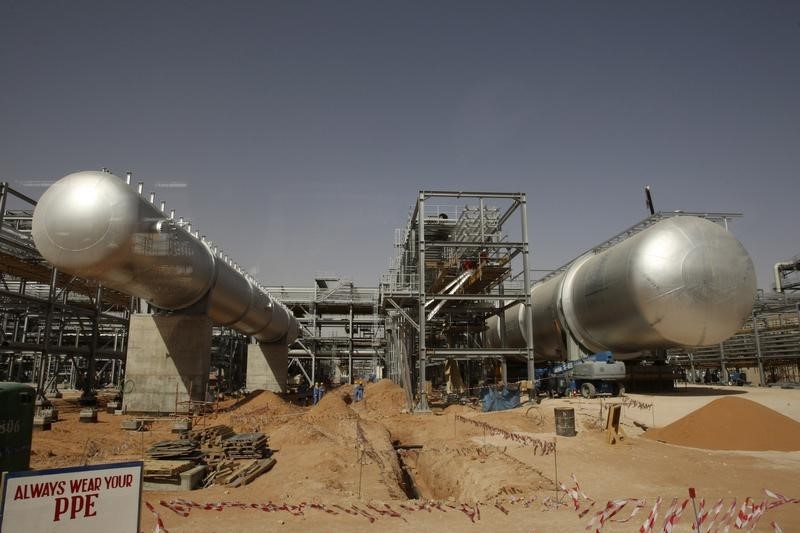Investing.com - Crude oil prices dropped sharply in Asia on Tuesday as demand prospects from China looked dim after manufacturing surveys showed continued weakness for the world's second largest importer.
In China, the August CFLP Manufacturing and Service PMI reached the expected 49.7 reading while services eased to 53.4 from 53.9 in July.
The August Caixin final Manufacturing PMI reached 47.3, up from a a preliminary 47.1 reading -- a six-and-a-half-year low that did much to knock investor sentiment when it was released earlier this month, helping to fuel last week's calamitous global markets sell-off.
On the New York Mercantile Exchange, WTI crude for October delivery plunged 2.80% to 47.82 a barrel after the data, with investors also taking profits after overnight gains.
The market will now take its cue off of industry data on U.S. stockpiles from the American Petroleum Institute later in the day. On Wednesday, the U.S. Department of Energy will release more-closely watched figures on crude and refined product stocks.
Overnight, crude futures rallied sharply on Monday extending considerable gains from late last week, amid downwardly revised estimates on U.S. output along with signals that OPEC could be willing to meet with its member states from emerging markets to develop a strategy in order to address crashing energy prices.
On the Intercontinental Exchange, Brent crude for October delivery wavered between $48.26 and $53.09 a barrel before settling at $54.09, up 4.05 or 8.08% on the session. For August, brent futures also closed higher by nearly 2%. The sharp rebound in crude prices since last Thursday represents the strongest three-day rise in more than a decade.
Crude prices reversed territory in Monday's session after OPEC, the world's largest oil cartel, issued a bulletin claiming that it "stands ready to talk to all producers," in an effort to stabilize a volatile energy market. Crude futures worldwide are down more than 40% since OPEC rattled global markets last November with a strategic decision to maintain daily production above a level of 30 million barrels per day. OPEC officials still remained adamant that it will protect its "own interests," and will not be a party to any discussions that aren't held on a "level playing field."
"Today's continuing pressure on prices, brought about by higher crude production, coupled with market speculation, remains a cause for concern for OPEC and its members—indeed for all stakeholders in the industry," OPEC officials wrote in a publication released on Monday.
The comments come days after reports surfaced that Venezuela in collaboration with Russia could push OPEC to hold an emergency meeting to suggest a method for helping bolster the price of crude oil. On Monday, a Kremlin aide said Russia president Vladimir Putin and Venezuelan president Nicolas Maduro could engage in talks to discuss "possible mutual steps" to stabilize oil prices worldwide at a meeting in China this week.
Crude proceeds from Venezuela's state-run oil companies account for 50% of its government revenue, 95% of its exports and 25% of its GDP, according to the U.S. Council on Foreign Relations. Russia, which is not a member of OPEC, derived more than 50% of its total exports from crude or petroleum products in 2013, according to the U.S. Energy Information Administration (EIA).
Separately, the EIA on Monday said U.S. crude output declined by more than 0.25 million barrels in June to 9.4 million bpd. The production decrease extended a monthly loss of 0.212 million bpd from the previous month. In April, U.S. crude production reached 9.612 million bpd, its highest level in more than 40 years.
